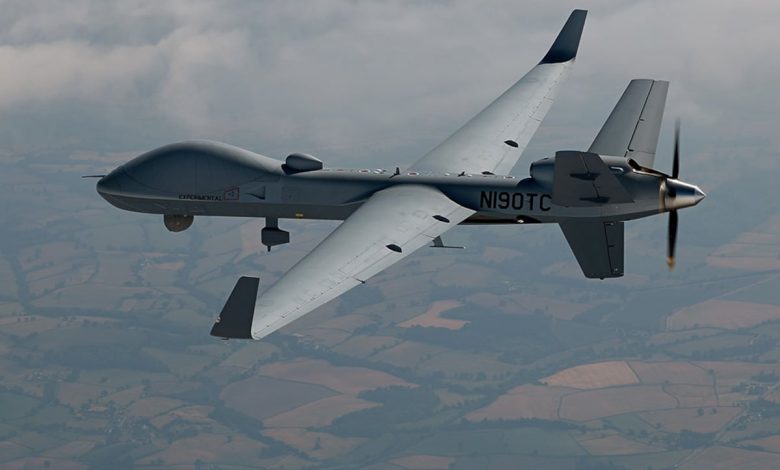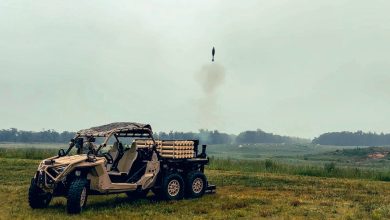General Atomics touts UK breakthrough in drone airspace integration

COLOGNE, Germany — U.S.-based drone maker General Atomics has achieved a key safety certification from British aviation authorities for the Protector drone, which will allow the unmanned aircraft to fly routinely over civilian areas, the company announced this week.
The so-called Military Type Certificate means the Royal Air Force’s Protector RG Mk1, which also goes by the designation MQ-9B, has passed a rigorous airworthiness assessment, a General Atomics statement reads.
In practice, the drones now have the blessing to operate “without geographic restrictions, including over populous areas,” the company said.
The achievement has been a long time coming for the U.S. drone vendor, which has pitched its drones’ ability to fly safely in civilian airspace as a key selling point for its business campaign in Europe.
Military drones must normally stay within protected corridors when flying over land, especially in densely populated areas found in many parts of Europe. That is because unmanned aircraft were traditionally designed with military objectives in mind, giving little consideration to fail-safe propulsion or collision avoidance in mid-air, for example.
“This April 29 decision was a first-of-its-kind milestone for a large, unmanned aircraft system,” General Atomics said in the statement, referring to the date the UK Military Aviation Authority passed its judgment. “It’s a huge accomplishment for the UK and a technological watershed in the history of unmanned aircraft systems.”
At the heart of the certification lies a NATO standard, dubbed STANAG 4671. The idea is that drone airworthiness achieved to these specifications is transferable across alliance members.
Linden Blue, the CEO of General Atomics Aeronautical Systems, said the company had spent $500 million over 11 years to have the the MQ-9B certified to the NATO safety standard.
Besides the British Royal Air Force, the company said it has MQ-9B orders from Belgium, Canada, Poland, Japan Coast Guard, Japan Maritime Self-Defense Force, Taiwan and India.
Sebastian Sprenger is associate editor for Europe at Defense News, reporting on the state of the defense market in the region, and on U.S.-Europe cooperation and multi-national investments in defense and global security. Previously he served as managing editor for Defense News. He is based in Cologne, Germany.







